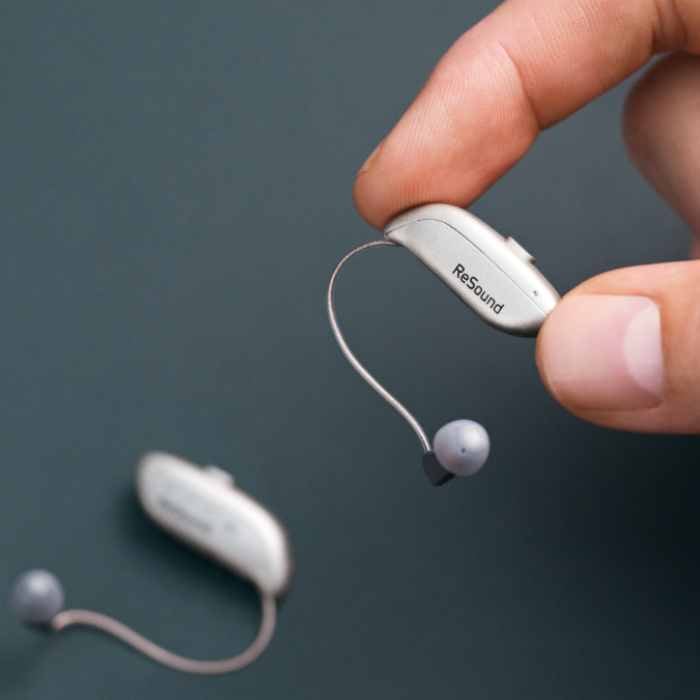Key Takeaways:
- While hearing aids can be quite expensive, there are a number of options for children and adults to receive financial assistance with hearing aids.
- Foundations, hospitals, and charitable organizations may offer funds to make hearing aids more accessible (see links below).
- Service organizations, Veterans Affairs, and vocational rehabilitation are other options that help eligible individuals receive hearing aids and hearing care.
- OTC and lower-tech level prescription devices can help those with limited budgets.

Are you feeling overwhelmed trying to navigate the current hearing aid market? With prices reaching up to thousands of dollars for a single device and often with minimal insurance coverage, it's no surprise that many people are interested in searching for cheap or free alternatives.
Being able to hear is essential in our daily lives and as an audiologist, it's something that I would like everyone to enjoy, regardless of budget. Hearing allows us to communicate with others, stay informed, and stay connected to the world.
The good news is there are plenty of free and low-cost options available. In this article, I'll tell you all about what an audiologist has to say on the matter—diving into what really works when it comes to getting your hearing back without breaking the bank.
Let's get started. 👇
No-Cost Hearing Aid Options
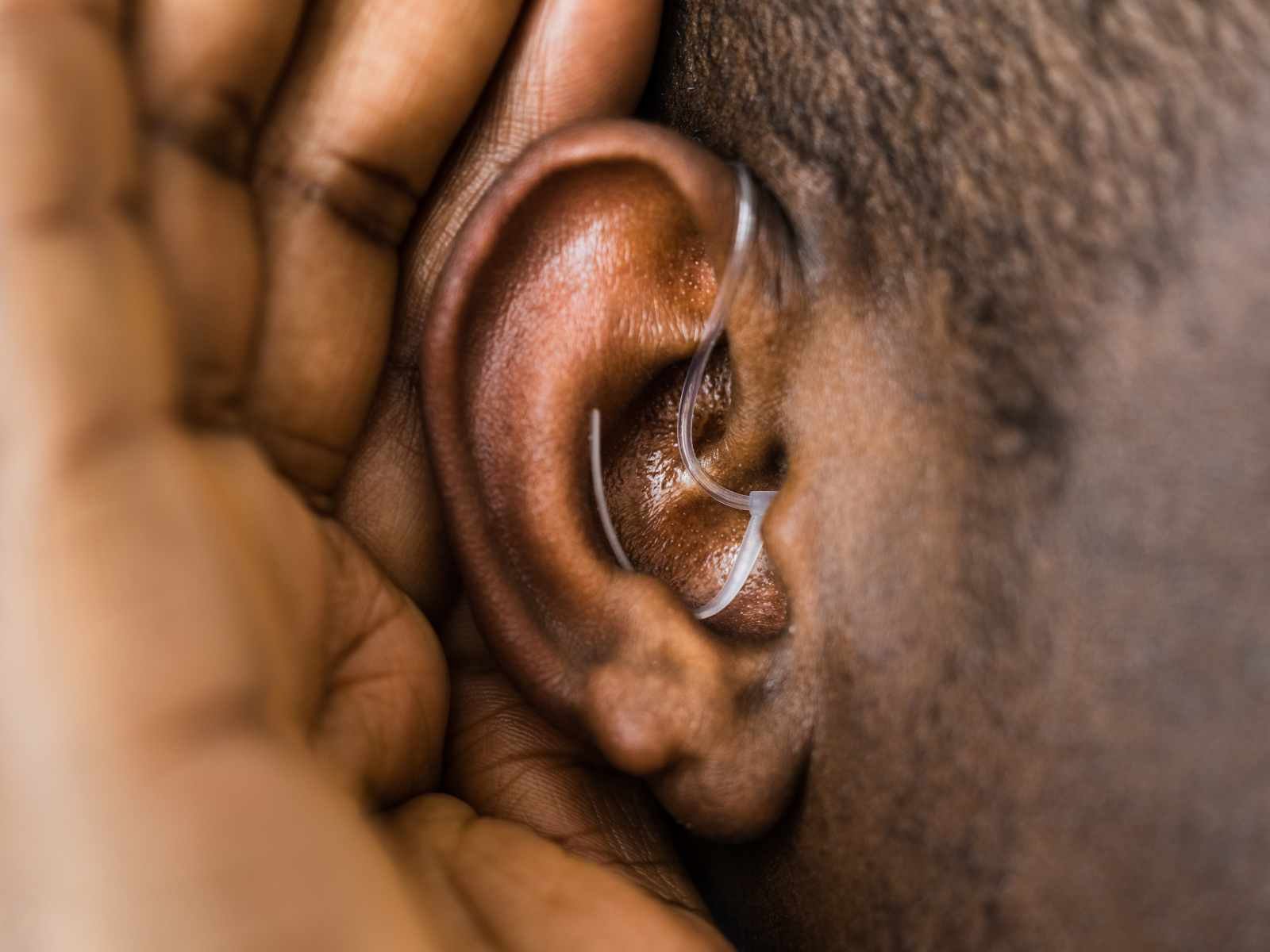
Believe it or not, there are hearing aids available at no cost.
We'll go through some of the options here, including devices for both children and adults that are inexpensive or low-cost.
Children
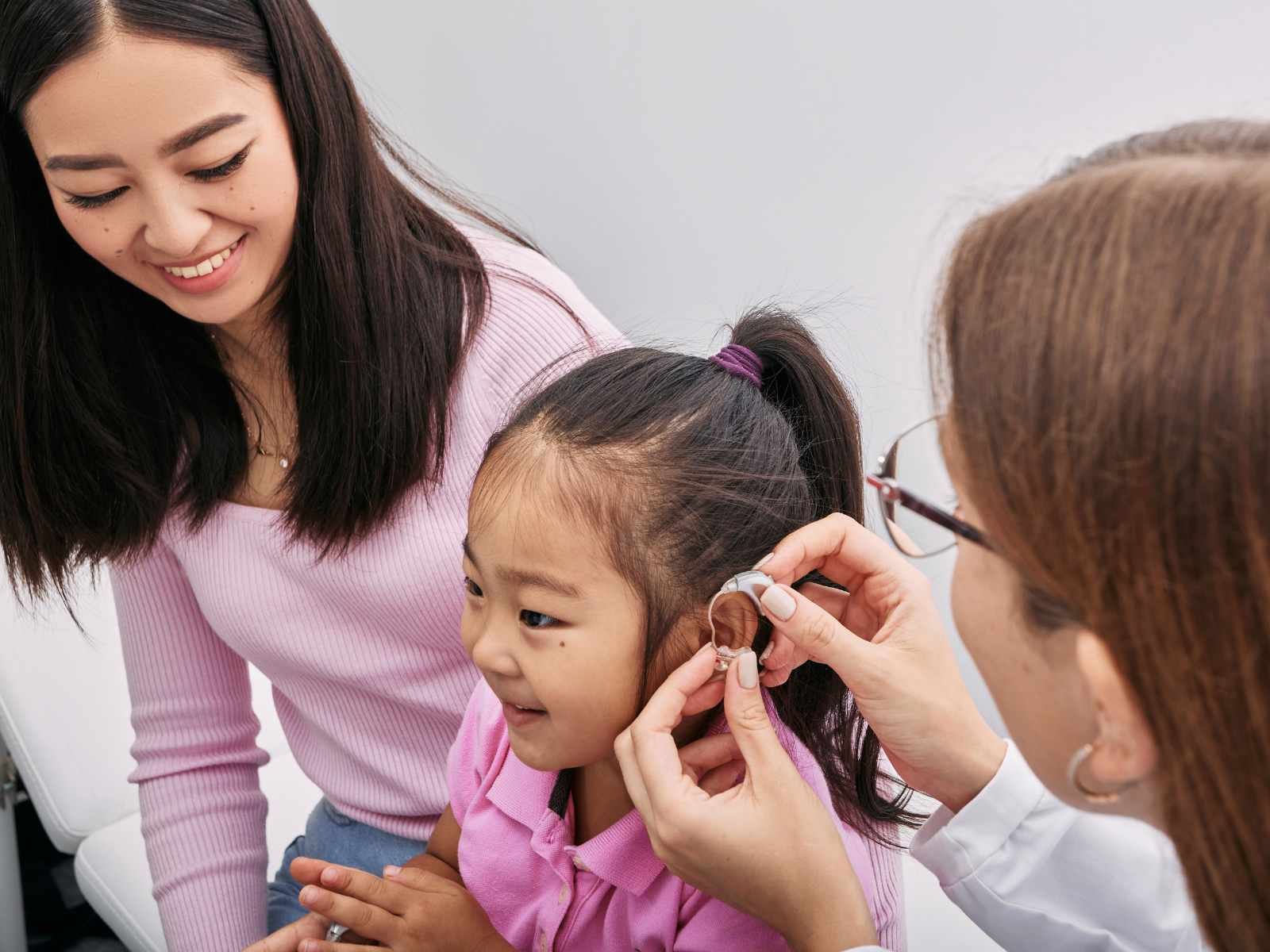
In School
Some schools have hearing aids or assistive technology available for children with an Individualized Education Plan (IEP) that states the child requires hearing services to receive a Free and Appropriate Public Education (FAPE).
The hearing devices are supported by the local school audiologist, who provides support and assistance to ensure your child has what they need in the classroom. While funding and resources vary by school district, it is worth enquiring about what is available in your child's school.
UnitedHealthcare Children's Foundation (UHCCF)
This non-profit charity has granted over $65 million to over 5,000 families of children with medical expenses, including physical therapy, wheelchairs, and hearing aids. The UHCCF's mission is to provide medical grants so children can get life-changing medical care. If you meet certain eligibility requirements, you can apply for a grant of up to $5,000 towards your child's hearing devices.
👉 Get more details about eligibility requirements here.
Adults and Children
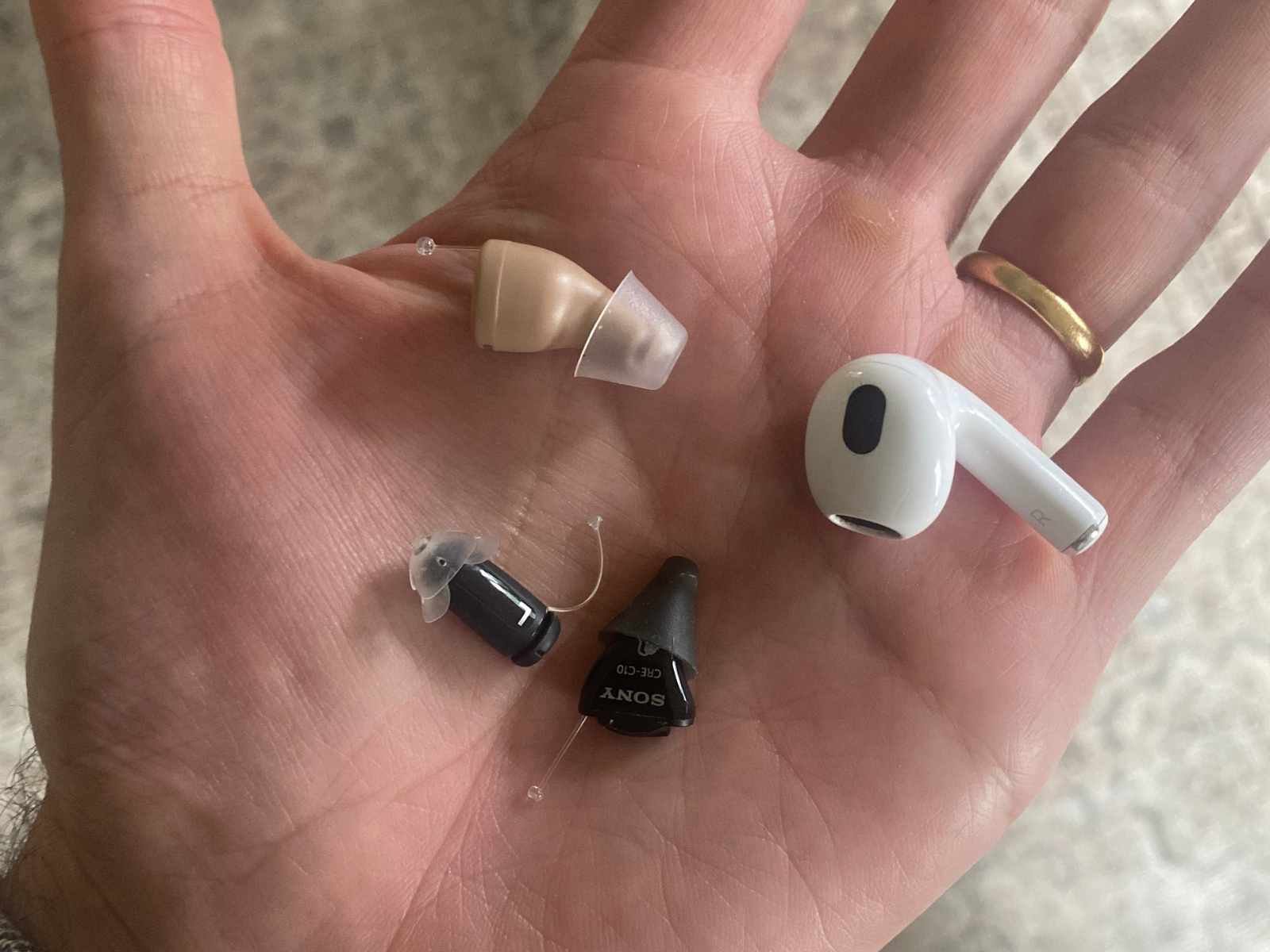
Hear Now
Hear Now is a non-profit organization that provides free hearing aids to qualifying individuals in the US with limited income.
They have a simple application process that includes medical documentation and proof of current finances. Through their program, those who qualify can receive top-of-the-line hearing aids and follow-up care. This program is made possible by donations of money, time, and resources among donors and audiologists for those in need.
👉 Learn more about free hearing aids here.
AG Bell Association
The Alexander Graham Bell Association for the Deaf and Hard of Hearing—also known as AG Bell—offers financial aid for children and young adults with hearing loss who need hearing aids.
The organization promotes education for individuals with hearing loss and provides scholarships and grants to help families pay for assistive devices, such as hearing aids. This program has been instrumental in supporting families struggling to access essential hearing aids for their children.
👉 Find out more here.
Miracle-Ear Children's Foundation
Miracle-Ear, Children's Foundation, represents another option for families with children under 16 who are dealing with hearing loss and meet specific income requirements.
This foundation is committed to making hearing aids accessible to those in need and providing new or reconditioned devices to qualifying children. The aim is to ensure that every child, regardless of their economic background, has the opportunity to hear. There are income eligibility requirements to qualify for this program.
👉 Read more here.
Medicaid and CHIP Coverage
Medicaid insurance can be a powerful resource for children and adults struggling with hearing loss.
Depending on the state, Medicaid programs can potentially cover the total cost of hearing aids for those who qualify. The eligibility is often determined based on income and specific medical needs.
It's important to note that the coverage and eligibility criteria can vary significantly from one state to another. Therefore, contacting your local Medicaid office or a healthcare provider for specific information is recommended. While finding the necessary resources can seem daunting, the potential of obtaining fully covered hearing aids through Medicaid can make the journey worthwhile.
👉 Get the full picture on Medicaid here.
Hearing Aid Banks
The Lions Club is an example of an organization with a hearing aid bank to help connect individuals in need with hearing healthcare at a no-cost or low cost. They offer financial assistance or free hearing aids to those who qualify, which aims to make hearing aids accessible and affordable to everyone.
Hearing aid banks are supported by grants and donations from others in the hearing health community, so checking your area for any available resources is essential. Once you locate a program near you, you can go through the application process and potentially gain access to free or low-cost hearing aids.
Hearing aid loaner banks are another option for children needing a temporary hearing aid solution. This service allows families to borrow a hearing aid until they can get a more permanent solution. These loaner banks are often found in hospitals, schools, and other organizations.
👉 Read more on hearing banks here.
Low-Cost Hearing Aid Options
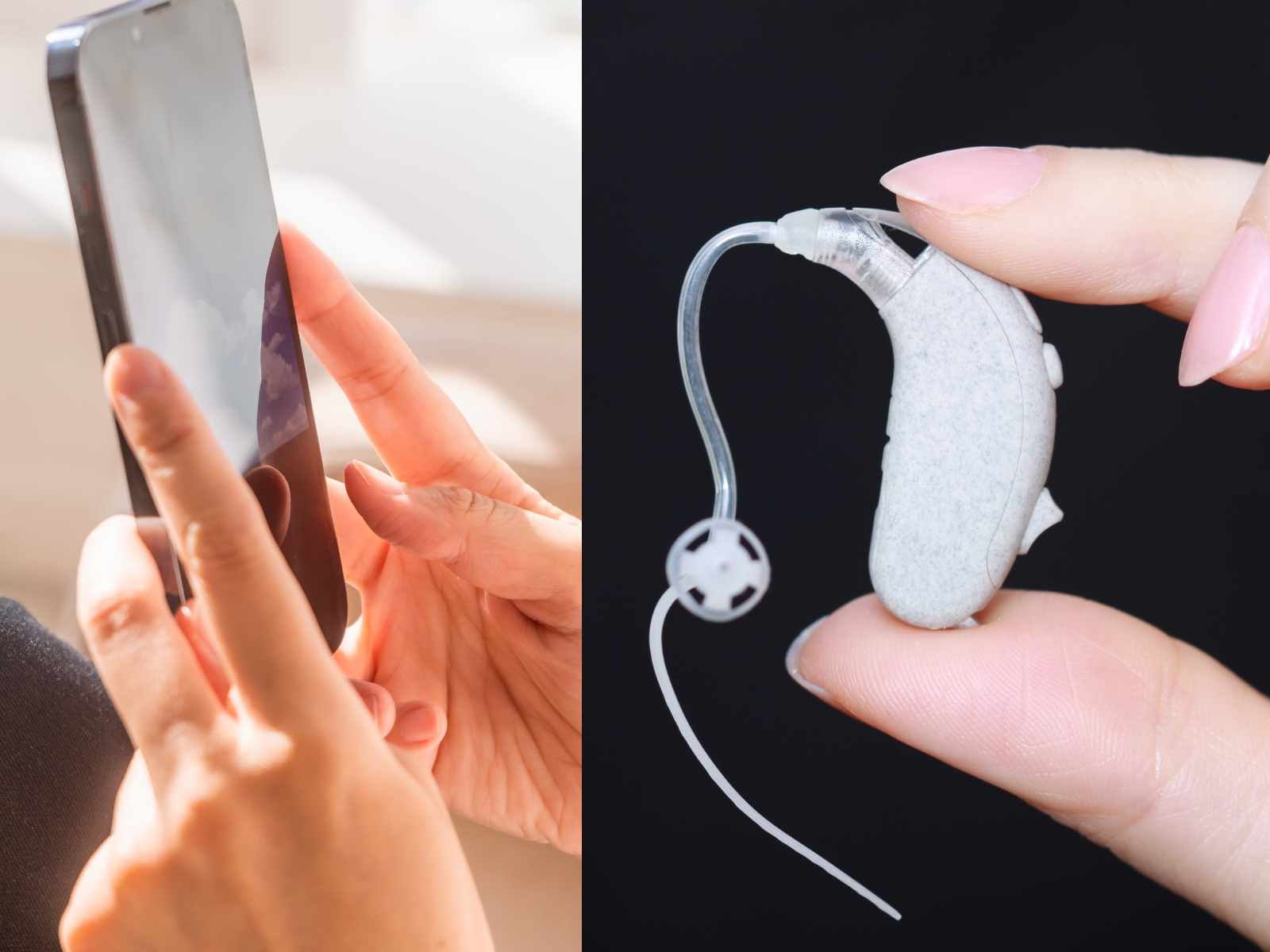
There are plenty of low-cost options if you're looking for an affordable hearing aid solution without breaking the bank.
Vocational Rehabilitation
There are options for adults with hearing loss to obtain no-cost or low-cost hearing aids or assistive devices through your state's vocational rehabilitation center. These programs support adults to prepare for, pursue, and maintain careers. Many states provide hearing aid services through their vocational rehabilitation centers.
👉 Find your state here.
Veterans
If you are a veteran eligible for VA benefits, there are no-cost and low-cost hearing aids available to you. The VA offers top-of-the-line hearing aids and assistive technology at no cost or with minimal co-pays. The VA supports hearing aid repairs and follow-up care. Read more about the VA benefits system here.
AUDIENT
For low-income individuals, AUDIENT is a non-profit organization supported by the Northwest Lions Foundation for Sight & Hearing. The group helps connect those in need with hearing aids and hearing healthcare at an affordable cost.
👉 Learn more about the Audient program by emailing [email protected] or calling 1-866-956-5400 x2.
Workplace
In some cases, you may be eligible for hearing assistance options through your workplace. If your employer has 15 or more employees or you work in a hotel, senior center, hospital, or residential facility, you may qualify for auxiliary aids and services for communication access.
👉 To learn more about your situation, call the ADA National Network at 1-800-949-4232.
Additional Resources
These are just a few examples of programs and low-cost options that can make hearing aids more accessible. Exploring all potential paths and resources is essential, as everyone's situation is unique. With the right resources and patience, finding the best solution for you or your loved one is possible.
Service Organizations
Many different civic or service organizations in your area may offer funding to support the cost of hearing aids. Try first reaching out to the national office and ask how to get in touch with your local chapter.
While funding may vary based on location, these are good resources to get in touch with options in your area:
Budget Hearing Aid Options
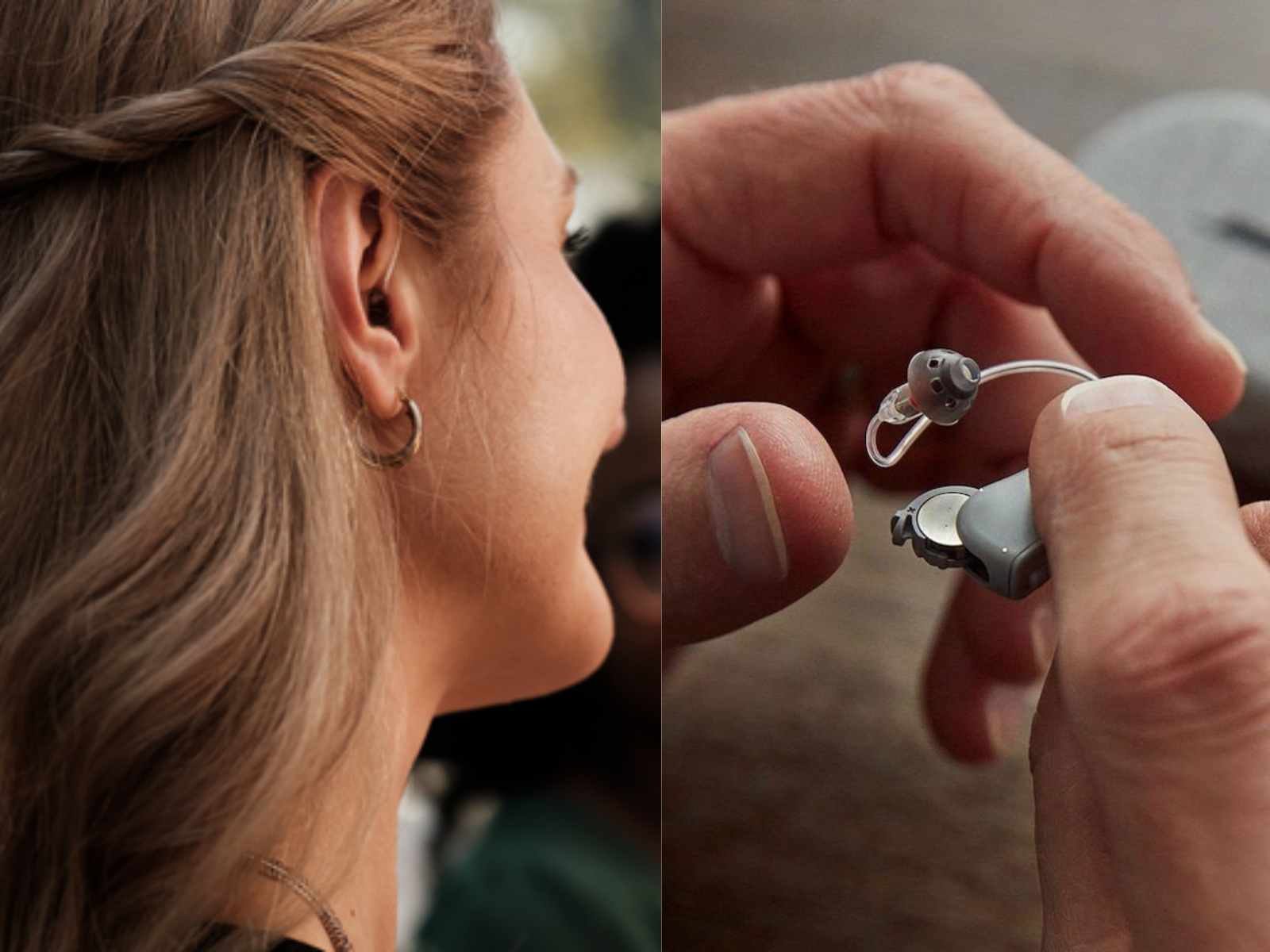
If you're looking for a hearing aid, options are available at lower prices to help accommodate your budget.
OTC Hearing Aids
For adults with mild to moderate hearing loss, some OTC options available can provide amplification at more affordable prices.
Bose’s Lexie B2 hearing aids are an excellent choice for a more affordable hearing aid. In my opinion, this is one of the best hearing aid options at this price point for those with mild to moderate hearing loss.
For those with more hearing loss, Lucid can be another good choice. They have OTC devices that can also be programmed by a hearing care professional to fit more severe losses.
⭐ FYI: Costco provides devices at a lower cost for those with a membership, which can be another option to help reduce costs for those needing a budget-friendly option. Read our full Costco review here.
Prescription Hearing Aids
For those with more than a moderate hearing loss or who need more support, there are still ways you can work with your budget.
Some clinics offer unbundled plans, which reduce the upfront costs. For some patients, this can make the price more manageable.
We often recommend ZipHearing to budget-conscious readers.
A lower technology level hearing aid (e.g., essential or standard technology rather than advanced or premium) can help reduce costs.
The most crucial factor, audiologically, is the appropriate programming and settings for your hearing loss. Other features at the higher technology levels help a lot with background noise, but having more basic technology (but appropriate amplification) is certainly better than going without hearing aids altogether.
👉 Read more about how to choose a technology level here.
Conclusion
In conclusion, tackling hearing loss shouldn't be an insurmountable financial hurdle. With a range of resources available, from vocational rehabilitation programs, veteran benefits, non-profit organizations, and workplace assistance to service organizations, numerous avenues exist to explore affordable hearing aids.
Moreover, budget hearing aid options, including over-the-counter and lower-tech options, offer a more cost-effective solution without compromising hearing quality.
⭐ Remember: It's crucial to remember the journey to improved hearing may require patience and research, but with the right resources and guidance, a suitable and affordable solution is attainable.



